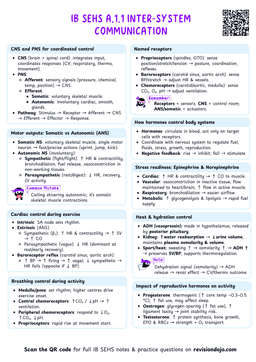Self-fulfilling prophecy
Self Fulfilling Prophecy
The self-fulfilling prophecy is a concept that suggests our beliefs and expectations about ourselves or others can actually influence the outcomes we experience.
The self-fulfilling prophecy and learned helplessness highlight the power of beliefs and expectations in shaping outcomes. By understanding these concepts, athletes and coaches can work to develop positive mindsets and overcome negative patterns.
1. Self-Fulfilling Prophecy (SFP) in Sport & Exercise
- A self-fulfilling prophecy occurs when an individual’s expectations influence their behavior, leading to the expected outcome. In sports, this can impact performance, motivation, and confidence.
A. How It Works in Sport
- Coach or Athlete Holds a Belief : e.g., "I am not good at free throws."
- Behavior Changes Based on This Belief: Less effort, lack of confidence in training.
- Outcome Aligns with the Expectation: Poor performance reinforces the original belief.
B. Types of Self-Fulfilling Prophecies in Sport
- Athlete’s Own Expectations (Self-Imposed SFP)
- Example: A sprinter who believes they are slow might not push as hard in training, leading to slower times.
- Coach’s Expectations (Other-Imposed SFP)
- Example: If a coach sees an athlete as a "future star," they provide extra training, leading to improved performance (Pygmalion Effect).
- Example: If a coach sees an athlete as a "future star," they provide extra training, leading to improved performance (Pygmalion Effect).
Many coaches believe that at least 50% of sports performance is mental when facing an opponent of similar ability. Do you agree or disagree? Explain your reasoning with a sporting example.
C. Impact on Performance & Motivation
- Positive SFP: Increases confidence, motivation, and effort.
- Negative SFP: Creates anxiety, reduces effort, and leads to underperformance.
Self-Fulfilling Prophecy (SFP) & Sporting Success
- The self-fulfilling prophecy suggests that an athlete’s belief in their abilities (self-confidence) influences their performance.
- Higher confidence → greater persistence, effort, and motivation → increased chances of success.
- Example: A basketball player who believes they will make free throws will practice more and remain calm under pressure, increasing their chances of success.
- Coaches and teammates reinforcing positive beliefs can further strengthen confidence and performance.
2. Learned Helplessness in Sport & Exercise
Learned Helplessness
A condition in which a person has a sense of powerlessness event or persistent failure to succeed. It is thought to be one of the underlying causes of depression.
- Learned helplessness occurs when athletes believe they have no control over their performance, leading to low motivation, reduced effort, and avoidance of challenges.
- A common sporting example of learned helplessness can be seen in tennis players who consistently lose against a particular opponent.
- If a player repeatedly struggles against a rival and loses despite their best efforts, they may start believing that no matter what they do, they cannot win.
- Over time, this belief leads to reduced effort, lack of motivation, and avoidance behaviors, such as giving up mid-match or playing passively.
A. How It Develops in Sport
- Repeated Failures: An athlete repeatedly fails to succeed (e.g., always losing games).
- Perceived Lack of Control: They believe that no matter what they do, they cannot improve.
- Passive Behavior: The athlete stops trying, leading to continued failure.
B. Key Research – Seligman’s Learned Helplessness Experiment
- Martin Seligman’s Experiment (1967) showed that when animals experienced repeated failure, they stopped trying even when success was possible.
- In sports, athletes may stop making an effort if they believe failure is inevitable.
C. Effects on Athletes
- Decreased motivation and confidence.
- Avoidance of competition or training.
- Links to mental health issues like anxiety and burnout.
D. Overcoming Learned Helplessness in Sport
- Setting Small, Achievable Goals: Builds confidence through gradual success.
- Positive Reinforcement & Encouragement: Coaches should focus on effort, not just outcomes.
- Attribution Retraining: Teaching athletes to attribute failure to controllable factors (e.g., training harder) instead of uncontrollable factors (e.g., “I’m just bad at this”).
Learned Helplessness & Sports Performance
- Learned helplessness happens when an athlete believes they have no control over their success or failure.
- Leads to low motivation, giving up easily, and avoiding challenges.
- Often caused by repeated failures, negative feedback, or external blaming (e.g., “I always lose because the referee is unfair”).
- Example:
- A basketball player who repeatedly misses crucial free throws in high-pressure situations may start believing they are simply "bad at shooting under pressure."
- As a result, they may avoid taking important shots, stop practicing free throws, and lose confidence in their overall game. This lack of effort and belief in their ability reinforces poor performance, further deepening their sense of helplessness in clutch moments.
- Can be overcome with positive reinforcement, goal-setting, and growth mindset coaching.
- For example, in a volleyball lesson:
- Constructive Feedback: “You didn’t set the ball correctly. Try contacting it above and in front of your forehead. With focus and practice, you will improve.” → This reinforces the idea that improvement comes with effort and persistence.
- Discouraging Feedback: “You didn’t set the ball correctly! But don’t worry—soccer is your sport, not volleyball.” → This subtly implies the student is not suited for volleyball, discouraging future effort and reinforcing learned helplessness.
- How can a coach help an athlete overcome learned helplessness?
- Can you think of a situation where a self-fulfilling prophecy affected your performance, positively or negatively?
To what extent do our beliefs shape our reality? Can changing our mindset truly alter outcomes, or are there limits to the power of positive thinking?


